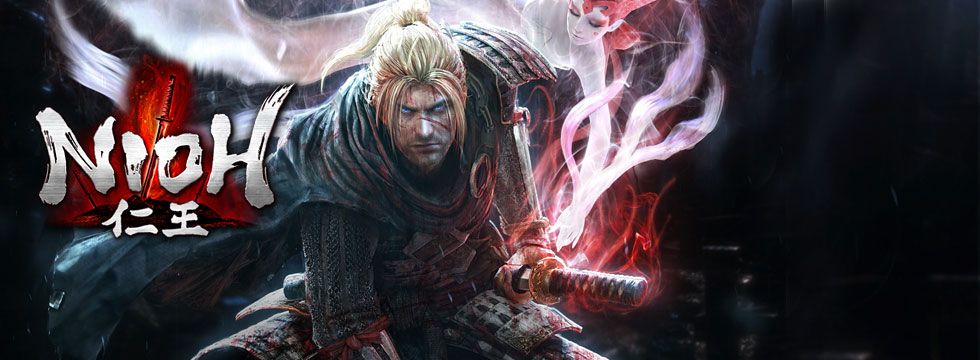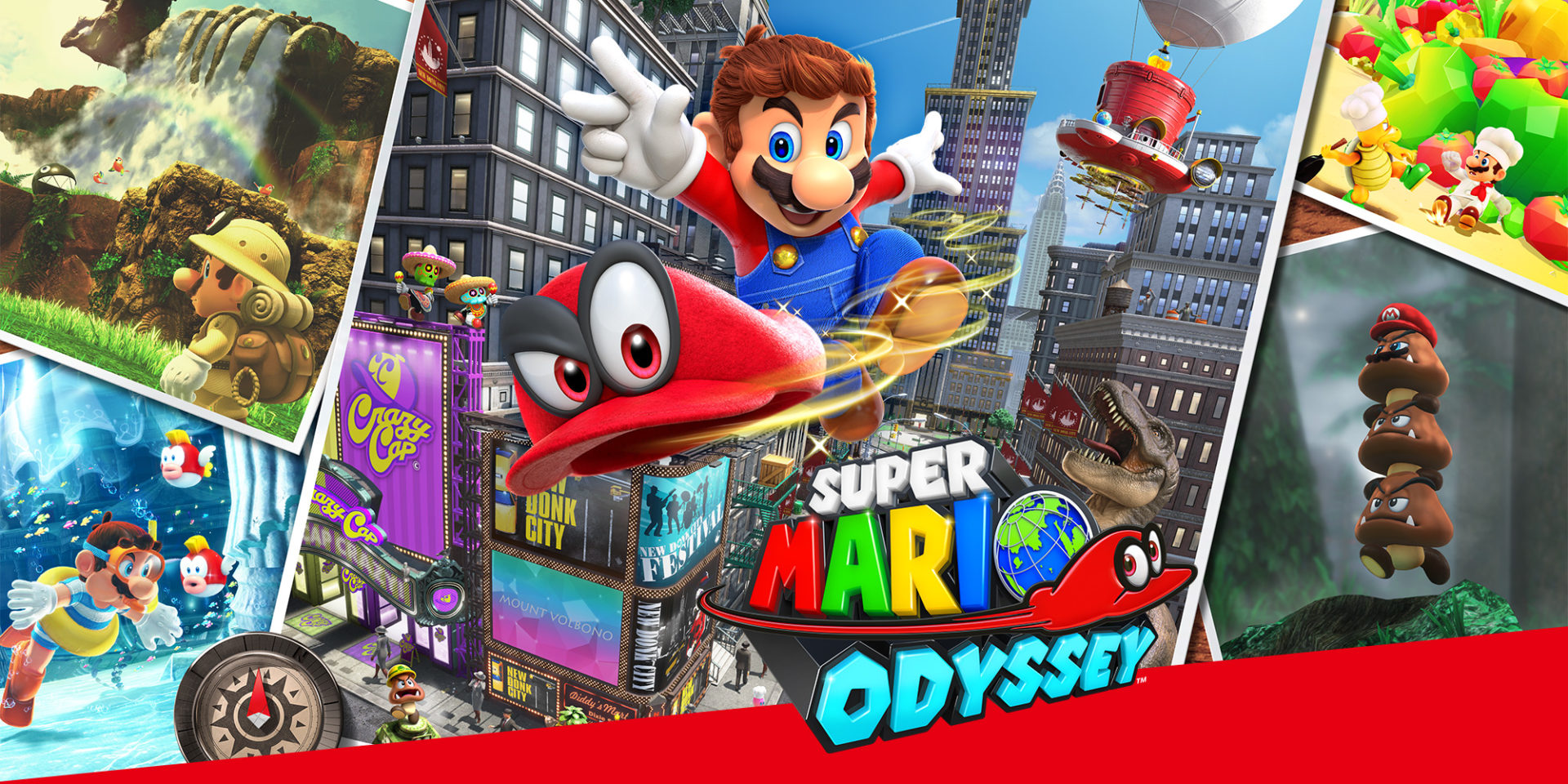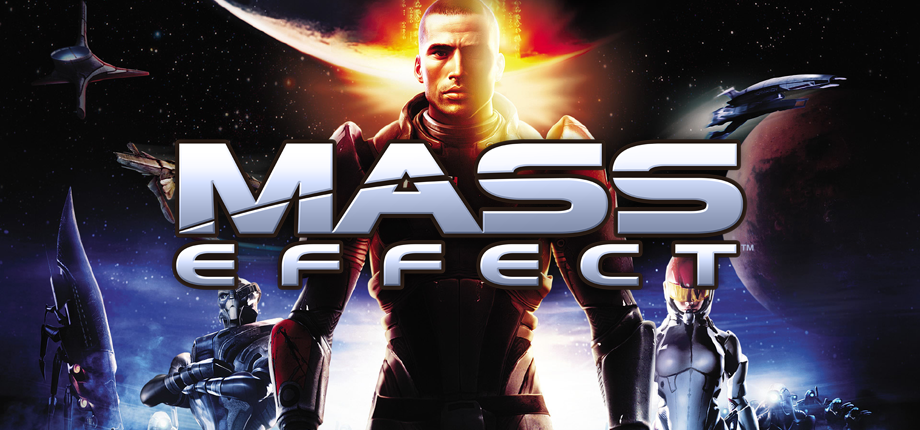Since my extended absence, I’ve stacked a bunch of games I’ve played, but haven’t written much about. On the other hand, I really don’t want to write a full review of these games either, since I don’t think I could fill a gargantuan article with it (nor add much theological insight). In that spirit, I’ll summarize my thoughts on them and give them a star rating (out of five, as per usual). Unless otherwise noted, I did finish the games in question (and if I didn’t, either life/boredom came up first, which should tell you enough about whether the game was even worth it in the first place). Without further ado…

Nioh (**** stars)
Dark Souls, meet Sengoku-era Japan. Dark Souls, meet Ninja Gaiden. Ninja Gaiden, meet Diablo. Whatever hilarious genre hybrid you want to call Nioh, Team Ninja’s somewhat overstuffed, post-Itagaki action-adventure follow-up to the Ninja Gaiden series acts as both course correction for the studio and enjoyable game all at once. Nioh wears its influences on its sleeve all the way, from careful and patient observation from From (HAR HAR) and complex/intense action-combat from Team Ninja’s earlier games, with a heaping helping of Gears’ active reload on-top. Co-directors Yosuke Hayashi and Fumihiko Yasuda still know what works within their particular niche, coming up with varied level designs, interesting encounters (if the enemy variety is a little bit low) and intimidating bosses. Add a complicated loot system, and you’ve got the setting for a great action-RPG that skims the Dark Souls “detail-oriented lore” fat and focuses on skillful, up-close combat rather than pause-and-attack.
Still, Nioh seems like a game making up for lost time, which comes out in unintended fashions. There’s simply way too much loot to sort through that takes away from the enjoyable core game loop, and tons of skills/features that are pretty unnecessary; no one belies the lack of options, and nothing really breaks the game, but sometimes complications exist merely for their own sake. Nioh also runs way past a reasonable play time, stretching into the 50+ hour mark (and probably more if you struggle!). You’ll see the same enemy types again and again in new configurations, the same bosses used again and again in new configurations, and probably get sick of everything towards the end – that Diablo grinding influence is surely felt a bit too much!
But then you remember the tight boss designs, the great levels, and the fantastic use of its setting, along with so much combat mechanic variety, that I’m ok with the minor quibbles in the face of so much wonderful excess. Nioh is like a 20-piece chicken bucket from your trans-fat purveyor of choice – should anymore eat that much fried food? Probably not, and it’ll take a while to digest, but nobody really regrets it that much, do they?

Super Mario Odyssey (** stars)
What an abject disappointment. Imagine Super Mario 64, except replaced by an intriguing movement system – Cappy, i.e., the hat throw – that allows for some entertaining world-traversal tricks unparalleled in a three-dimensional Mario game. Now imagine a game that implements such a great set of mechanics, and then uses ZERO of them in any meaningful fashion. If Super Mario 64 marks the first time a platformer succeeded in the 3D space, Super Mario Odyssey surely seems the first time a developer completely ignores its mechanics in level design to the point of absurdity.
Odyssey replaces 120 Stars, each obtained with a unique reflex challenge, puzzle or mystery, with 999 Power Moons that come from sources as innocuous as “stomp on a thing on the ground” or “talk to a man sitting on a bench” or, my personal favorite “follow a dog around until he digs up a Power Moon”. Nintendo came up with somewhere in the range of 50-60 challenges, copy pasted them, and then layered them over the beautiful lands of Odyssey; places look nice, but blend into one another, with nary an interesting or memorable challenge that hasn’t been copy pasted. Half the solutions in the game boil down to “throw you hat at the thing to possess it”, which is pedantic and counter-intuitive at the same time in a VIDEO GAME with Mario in it where JUMPING to things is expected. A few memorable platforming bits exist, but Nintendo concerns itself more with celebrating their own success than making a truly interesting or exciting video game.
Most of these design considerations come from 1. the Switch’s portable nature and 2. an appeal to the children who may play their first Mario game on the Switch, but that’s a poor excuse for such a lackluster game – an appeal to childhood wonder doesn’t cover up the fact that intelligent children will become bored very quickly here. Super Mario Odyssey is Mario for the Millennial Generation: obsessed with childhood nostalgia, in pursuit of easy rewards, into the “theme park” experience more than the real thing. If there were a greater waste of potential in video games, I’ve yet to see it.

Mass Effect (*** stars)
I’ve tried to play Mass Effect several times – once on the 360, once on PC, and then again on PC, finally finishing the game! I don’t think I’ve ever been a fan of BioWare’s dialogue trees and incessant shot-reverse shot sequences where boring looking people talk to each other, but I can certainly respect the first game in the series for being highly ambitious. Mass Effect tries to be the playable Star Wars/Star Trek hybrid everyone wanted, with dense reams of lore, backstory, and character motivation as is fitting for a role-playing game where you (gasp!) play a role. For a game from 2007, the plot’s basic introduction to a dense universe still holds up as an intriguing idea, inviting players to drink in the atmosphere of the Citadel and the enormity of the universe these people/things inhabit
Unfortunately, due to a combination of the same ambition that makes Mass Effect interesting and the natural rigors of triple-A development/budgets in the PS3/Xbox 360 era, BioWare bites off more than it can chew. The “large” universe really consists of a few locations; the rest of the universe consists of planets you can see, not visit; those that you can bore the player with a terribly-controlling dune buggy and literally nothing of any real interest. The combat system cribs liberally from the cover-based shooters that were all the rage, and tries to combine this with a Baldur’s Gate turn-based affair with mixed, and ultimately janky, results. The inventory management leaves much to be desired, especially when so many things drop; even the PC version takes forever to arrange things, and so, so many indistinguishable guns and equipment will fill your inventory before long.
And yet, I can’t help but say I enjoyed Mass Effect as a whole. I don’t hate any one element, and the sum of the parts make up for the lackluster nature of BioWare’s usual failures (including the really boring visual design, but I expect that when developers attempt photo-realism…sorta?). Though the sequel would remove much of the good of Mass Effect and add a whole lot of superfluity, the first entry in the series satisfies those looking for an interesting, weird curio of the Xbox generation, where developers were given untold sums of money to do whatever they wanted. And while it doesn’t pay off everywhere, it pays off enough that Mass Effect deserves a cautious recommendation, at the very least.
